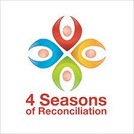
This 2.5-3 hour course is intended for teacher professional development.
- Subject:
- Indigenous Perspectives
- Material Type:
- Teaching/Learning Strategy
- Author:
- Arlene Low
- Date Added:
- 09/30/2021

This 2.5-3 hour course is intended for teacher professional development.

The Assembly of First Nations has developed the It's Our Time First Nations Tool Kit as the basis of a comprehensive strategy to reach out to First Nations students, teachers, schools, communities and the Canadian public at large. The resource is designed to bring together First Nations and non-First Nations people and foster a spirit of cooperation, understanding, and action.
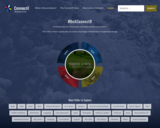
ConnectR is an online tool created to inspire Reconciliation in Canada.
ConnectR helps you choose your next steps towards reconciliation.
Find calls to action to grow what you know, encourage a shared future and generate change.

An inquiry-based project to map the land in your community. The key concepts in this unit are grounded in Indigenous beliefs of interconnectedness, connectedness, and respect for all things.
The driving inquiry questions for this unit are:
1. How can respect for the land be shown?
2. What do we look for when setting up a camp?
3. What stories or teachings are connected to key locations in and around our community?
4. How has the land around our community changed over time?
5. Who do we share our community’s lands with?

From October 17th to 22nd, we observe Secret Path Week, an annual event dedicated to honoring the legacies of Gord Downie and Chanie Wenjack. These dates mark the anniversaries of Gord Downie’s and Chanie Wenjack’s entering the spirit world. Chanie, only 12 years old, fled from Cecilia Jeffrey Residential School in Kenora, Ontario, and walked along the train tracks for 36 hours before succumbing to exposure on October 22. Although Chanie is no longer with us, his story lives on through Gord Downie’s album Secret Path.
Join us virtually to learn directly from Indigenous artists, scientists, musicians, writers and more!
Watch Live or Watch Later
Camera Spot
Call In
Write In
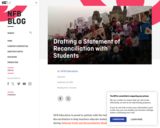
Four mini-lessons have been created to address this topic. Highlighting Indigenous-made films from the NFB collection, the lessons will help students understand the spirit and intent of the treaties and provide them with the information they need to discuss the issues of access to drinking water, health care and education. In a spirit of reconciliation and co-operation, students are encouraged to write, record and share their Land Acknowledgement statements on social media
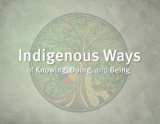
This video resource, created for teachers and students in Saskatchewan, offers insights from four cultural groups: Anishinabee, Cree, Métis, and Dene. It includes personal stories that emphasize the significance of the seasons and how they influence community life and traditional practices. You’ll discover reflections on the essential roles of elders and knowledge keepers, as well as the importance of kinship, family, and community connections. The resource also addresses Treaty education, storytelling, traditional foods, ceremonies, land-based learning, along with personal narratives about residential schools. By sharing these stories and perspectives, we enhance our understanding and knowledge as we progress on the journey of truth and reconciliation.
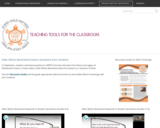
Elder Wilson Bearhead answers questions from students - supporting videos, and a discussion guide are included.
Also - tools for talking circles, and lessons.

Indigenous art colouring page in honour of National Day of Truth and Reconciliation/Orange Shirt Day
Child, Heart, Florals

Urban Iskwew - artwork by Hawlii Pichette

Written by award-winning Indigenous author Monique Gray Smith, this magazine, which is based on the Seven Sacred Teachings, is aimed for students in grades 5–12 and is available in both English and French.
Each chapter teaches children about residential schools, Treaties, and the historic and current relationships between Indigenous and non-Indigenous peoples.
Accompanied by supplementary educational resources, the magazine is both a guide and a journal for young people as they explore their feelings, build confidence, and foster greater respect and empathy throughout their reconciliation journeys.

Eleven of the ninety-four Calls to Action of the Truth and Reconciliation Commission of Canada (TRC) final report are specific to education. Call to Action 63, “Building student capacity for intercultural understanding, empathy, and mutual respect,” challenges Canadian education systems to focus on students’ understanding of Indigenous human rights and social justice initiatives. Non-Indigenous students are now beginning to learn about the truth of residential schools, treaties and other long-standing issues facing Indigenous communities such as lack of clean drinking water, housing and food shortages. Truth and reconciliation is a spiritual and emotional journey required of all students and educators – from the head to the heart – that will unfold differently for everyone.
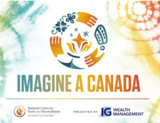
Youth who participate in the art and essay stream can submit an art piece, essay, or other representation to express their vision of a reconciled Canada and what they hope others will learn from their submission.
Youth who participate in the project stream are asked to go one step further and submit a plan on how their project will address Reconciliation in their community or school.
Youth from select projects in both streams will be invited to participate in virtual leadership training exercises.
At the end of the school year, a national celebration will be held to honour up to twelve projects from the art and essay stream and up to fifteen projects from the project stream.
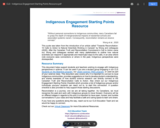
This document helps support students and teachers wishing to engage with Indigenous perspectives in science. It also covers why it is important to connect to local Indigenous communities, provides suggestions on how to develop student understanding, and shares examples of how student science research can directly connect to the
Canadian Truth and Reconciliation Calls to Action.
Also check out the Indigenous Engagement Starting Points Checklist which provides a list of Indigenous groups and/or individuals you/your students can reach out to, to start this connection. A question checklist is also provided to help support those starting discussions.
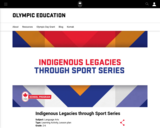
In honour of Truth and Reconciliation Week, the Canadian Olympic School Program is proud to feature the stories of two distinct Indigenous Team Canada athletes, Jesse Cockney and Jillian Weir. Through their personal growth and achievements, they have brought Indigenous voices to the forefront.
Students will explore the themes of gratitude and inclusion, making links between their world, curriculum and stories.
Athlete Stories are available in two different reading levels, Kindergarten – Grade 3 and Grade 4- 6. Each story is accompanied by discussion questions and learning activities that teachers can easily integrate into their curriculum.

This is a well-organized site that is easy to navigate and is available in both English and French.
There is much information on this site and I would encourage you to explore and read this resource online.
Topics include:
Truth & Reconciliation
First Nations
Inuit
Metis

This is an interview with First Nations lawyer and poet Francine Merasty. The interview is in three parts with each part focusing one one of her poems.
Part 1 Homebound-Residential Schools
Part 2 Fiery Woman-60's Scoop
Part 3 Reconciliation- TRC Calls To Action

Homebound-A Reading and Conversation with Cree poet Francine Merasty on the healing power of poetry. With grace and wit, Francine discusses how has helped her deal with the trauma of residential schools and celebrate the strength of her family.

The Legacy of Hope Foundation is a very comprehensive site that offers lots of great resources that help to promote healing and Reconciliation in Canada. The Legacy of Hope Foundation's (LHF) goal is to educate and raise awareness about the history and existing intergenerational impacts of the Residential School System (RSS) and subsequent Sixties Scoop (SS) on Indigenous (First Nations, Inuit, and Métis) Survivors, their descendants, and their communities to promote healing and Reconciliation.Check out each of the sections to see the great resources they have to offer.
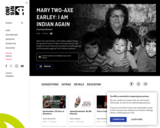
This study guide will guide students in discussing and reflecting on the injustices and discrimination that the Indian Act has created for First Nations women. Students will also begin to consider how the injustices have a long-term impact on the lives of Indigenous women and girls. What it means to be an Indigenous person will also be reflected on. After watching this film, students should be able to identify and define Mary Two-Axe Earley as a leader of the Canadian women’s rights movement who challenged Canadian laws that discriminated against First Nations women. A follow-up action includes an activity that describes, illustrates, appreciates and honours Mary Two-Axe Earley’s contribution and legacy.